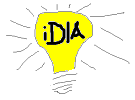Time is a very simple construct. Someone asks you what time it is; you glance at your watch, and tell them. "It's a quarter to five." Or you might say, "It's four-forty-three," to give a little more precision. Or maybe "four-forty-three PM" or "sixteen-forty-three." Maybe "four-forty-three PM Eastern Daylight Time" would be more precise, though possibly less helpful if the other person was in a different time zone and it was a time of year when daylight savings time wasn't in effect.
Time is a deceptively complex construct.
This is all unfinished, at this time. (ToBeWritten)
Reference Point
Testability
See also Martin Fowler's ClockWrapper pattern.
Precision
It's possible to have too much precision.
Time comparisons
Is "May 5, 2006" before, after, or equal to "8:00 AM, May 5, 2006"?
References
Martin Fowler discusses a number of Patterns for things that change with time (also found as Temporal Patterns) and ranges (including Time ranges).
- Somewhere I've seen a library to handle many common Time problems in Java. I can't find it at the moment.
